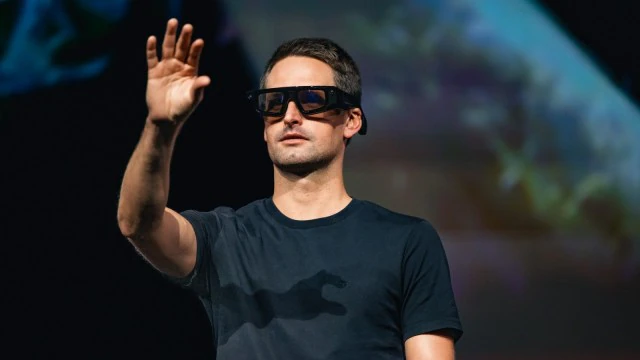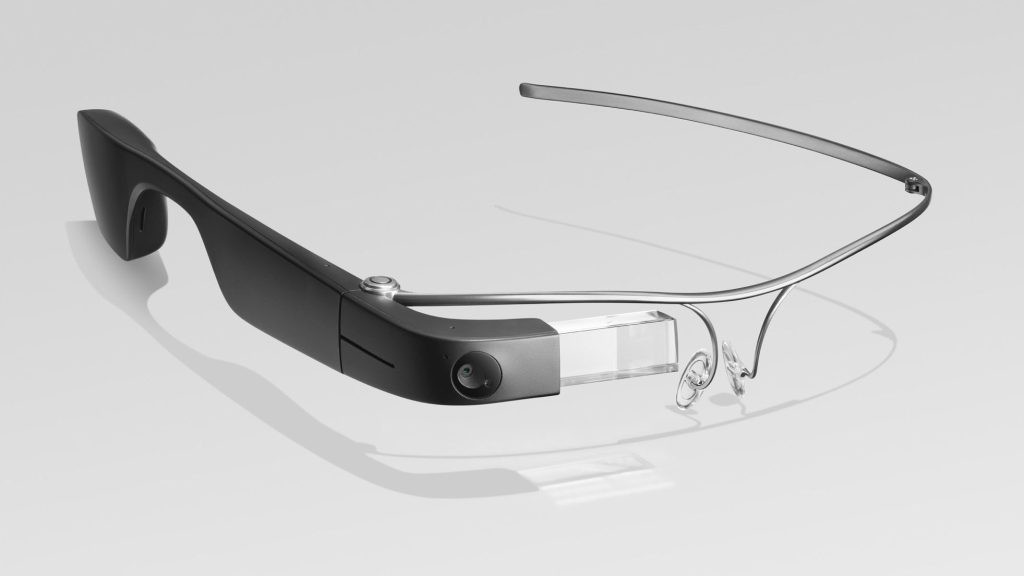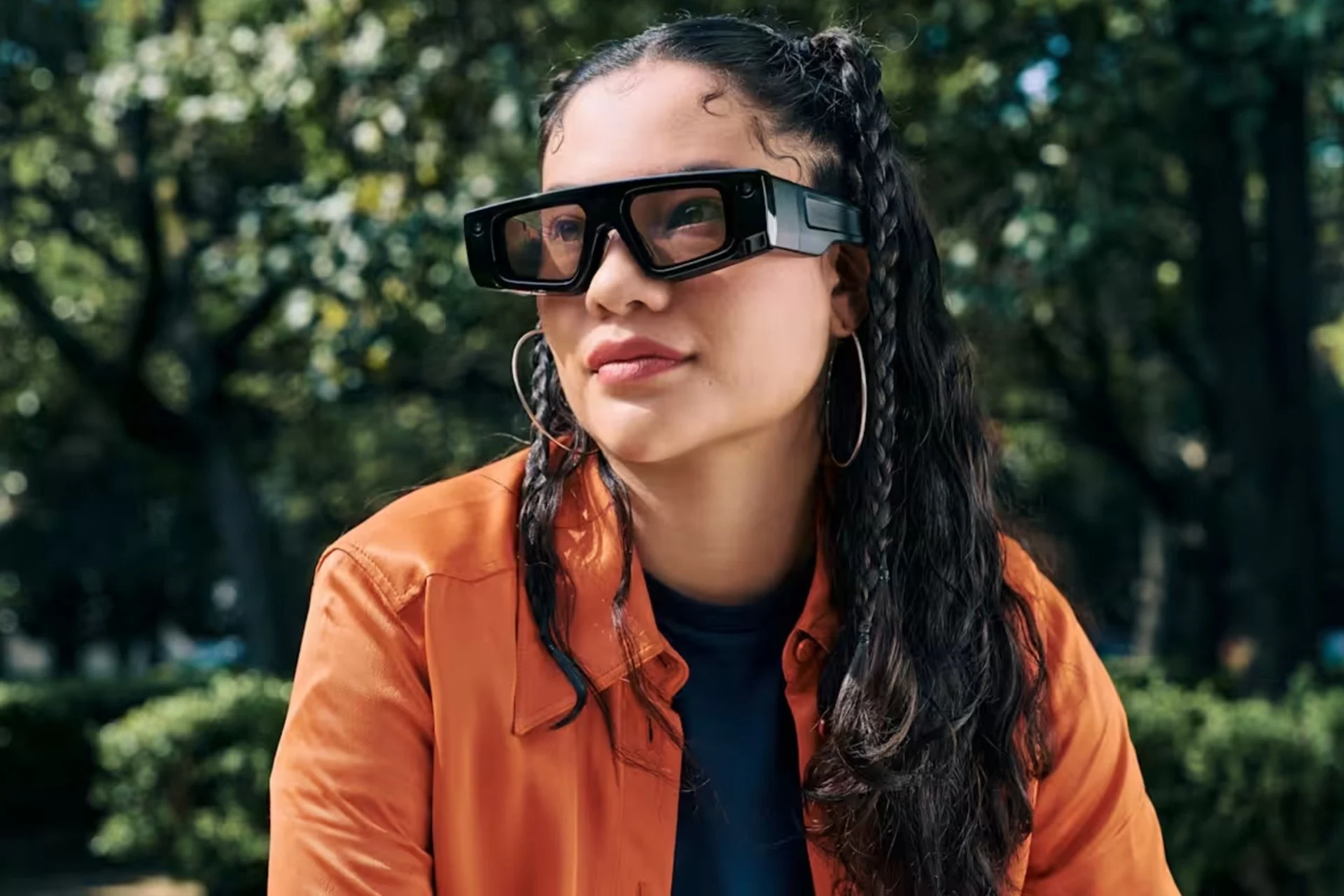 |
Snap CEO Evan Spiegel believes augmented reality (AR) glasses will one day become as ubiquitous as phones. Photo: Snap Inc. |
Silicon Valley is slowly getting back into the race to develop smart glasses, a technology that giant Google failed to popularize more than a decade ago with the Google Glass product.
Now, big names like Google, Meta, and Snap believe that the times have changed, thanks largely to advances in artificial intelligence (AI). These companies are all-in on developing truly “smart” glasses that can recognize and interpret the world around them and provide real-time feedback.
New generation of smart glasses
Snap, Snapchat's parent company, recently announced AI-powered glasses that are expected to launch in 2026. The move signals a strong belief among the tech industry that smart glasses will be the next big breakthrough product.
According to CNN , the interest in this technology arises from two main factors: smartphones are gradually losing the appeal to encourage users to upgrade regularly, and technology companies are eager to fully utilize AI by integrating it into new hardware.
Although the concept of smart glasses is no longer strange, today's advanced artificial intelligence (AI) models have made a big step forward. With the ability to simultaneously process images, videos , and voices, solve complex requests, and respond naturally, the new generation of smart glasses promises to bring a superior experience compared to previous versions.
 |
Google Glass, launched in 2015, failed to gain traction. Photo: Google. |
“AI is making these devices much easier to use, and it’s also opening up new ways for people to use them,” said Jitesh Ubrani, research manager for wearables at IDC.
Previous generations of smart glasses from Google, Snap, Meta, and Amazon have largely failed to achieve success. The original Google Glass, for example, was criticized for its small screen, poor battery life, high price, and outdated design.
Even successor products like “Amazon Echo Frames” or “Ray-Ban Stories” only stop at basic features like listening to music or taking photos hands-free, without any significant breakthroughs compared to what a regular smartphone can do.
But the current generation of smart glasses has made great strides. In a prototype demo, Google's Gemini assistant was able to suggest cocktail recipes just by analyzing images of liquor bottles.
Notably, the glasses also have the ability to store visual information: at the Google I/O event, an employee asked Gemini the name of a coffee shop printed on a cup she had seen earlier, showing an incredible ability to remember and process visual data.
 |
Successors like Ray-Ban Stories have restored tech industry confidence in smart glasses. Photo: Meta. |
Meta's Ray-Ban Meta AI glasses offer more advanced features. Users can easily ask about the spiciness of a chili pepper they're holding or translate conversations in real time. The commercial success of the glasses has been remarkable, with more than 2 million units sold since their launch in 2023, according to EssilorLuxottica .
“There have been many unsuccessful attempts. But now we finally have a viable idea of what the future of smart glasses could look like,” said Andrew Zignani, senior research director at ABI Research.
Market research also supports this forecast. According to ABI Research estimates, the smart glasses market will see significant growth from 3.3 million units shipped in 2024 to nearly 13 million in 2026.
Similarly, IDC forecasts smart glasses sales, especially products like Meta's, to grow from 8.8 million units in 2025 to nearly 14 million in 2026.
Do users really want smart glasses?
In a blog post, Snap made its vision clear: “The tiny smartphone has limited our imagination. It forces us to look down at the screen, instead of up at the world.”
Competition in the smart glasses space is heating up. Bloomberg reports that Apple is also developing its own smart glasses, which are expected to launch in 2026 and will compete directly with Meta.
Amazon’s head of devices, Panos Panay, also hinted at the possibility of Alexa glasses with cameras in the future. “I think you can imagine there’s a whole range of AI devices coming,” Panay said.
Meta CEO Mark Zuckerberg recently reaffirmed his belief that smart glasses could become central to technological interaction in the future.
 |
Companies need to convince users that they really need smart glasses. Photo: Snap Inc. |
“A big bet we’re making is that much of how people interact with content in the future will happen through various AI mediums, and eventually through smart glasses and holograms,” he said on a company conference call in April.
However, smart glasses face a major challenge - convincing consumers of the need for a new technological device, especially those who do not wear glasses. These products must provide a compelling enough use case for users to be willing to wear them continuously throughout the day.
On the other hand, price is also a significant barrier. Meta’s Ray-Ban glasses cost around $300 , about the same as a smartwatch. While that’s much lower than Apple’s Vision Pro mixed reality glasses ( $3,500 ), it could still be a tough sell at a time when consumers are cutting back on tech.
Global smartwatch shipments fell for the first time in March, according to data from Counterpoint Research , suggesting consumers are spending less on devices that are not considered essential.
However, technology corporations are still willing to bet big on this segment, aiming not to miss the opportunity to create a "blockbuster".
“Many people in the industry believe that smartphones will be replaced by glass or something similar. That’s not going to happen today, it’s going to be many years from now. And all these companies want to make sure they don’t miss that turning point,” said Ubrani.
Source: https://znews.vn/cong-nghe-ca-google-meta-va-snap-deu-theo-duoi-post1561024.html


























![[Photo] Central Propaganda and Mass Mobilization Department meets with exemplary journalists](https://vphoto.vietnam.vn/thumb/1200x675/vietnam/resource/IMAGE/2025/6/21/9509840458074c03a5831541450d39f8)


























![[Maritime News] Wan Hai Lines invests $150 million to buy 48,000 containers](https://vphoto.vietnam.vn/thumb/402x226/vietnam/resource/IMAGE/2025/6/20/c945a62aff624b4bb5c25e67e9bcc1cb)






































Comment (0)